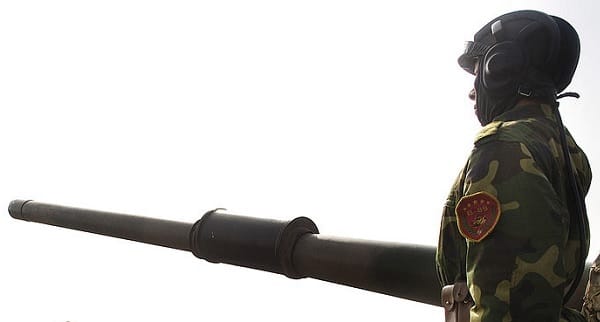Earlier this month, China unveiled its defence budget for 2014 –US$132 billion, an increase of 12.2 per cent over the year before. The country’s military spending has grown almost every year for the past two decades, but this latest rise comes amid ongoing tensions with Japan and in the South China Sea. Should China’s neighbours be concerned?
In context
The impact of China’s defence budget should not be overestimated. It is spending more, but it is also getting less and less bang for its buck. The country faces increasing costs in adopting new technology, and military wages are also rising in line with civilian salaries.
The news about China’s defence budget has been widely contrasted with the situation in the United States, where military spending is on the decline. But Chinese officials are quick to point out that Washington still spends far more on its military than Beijing.
It’s not just about money
Along with the budget, President Xi Jinping also announced that China would create a new joint operational command structure, not unlike that of the US military. Mr. Xi will also be personally heading the committees charged with restructuring China’s armed forces. This move comes in the wake of a February corruption probe in China that targeted a former lieutenant general, one of the most senior military officials to ever be accused of graft. The fact that Mr. Xi is taking on vested interests in the military is significant. Reform of China’s armed forces may have a greater impact on the region’s security than any actual spending, if it leads to a more professional military that takes its cues directly from Mr. Xi and the Communist Party, instead of its internal power blocs.
The security dilemma
How are China’s neighbours responding? Japanese Prime Minister Shinzo Abe has been pushing for greater spending on security, after years of cuts, and aims to change the official interpretation of Japan’s pacifist constitution to allow its forces greater operational leeway. However, there is a classic “security dilemma” at work here. Mr. Abe’s policies are at least partly in response to China’s power. But these very moves make China even more wary and keen on strengthening its armed forces in turn. Some commentators have described the situation as a new arms race in Asia. This is probably too dramatic, but there is certainly cause for concern in the days ahead.
Sources
At the double [The Economist, 15 Mar 2014]
Pop culture boosts military’s image as Abe eyes bigger defence budget [TODAY (Reuters), 15 Mar 2014]




